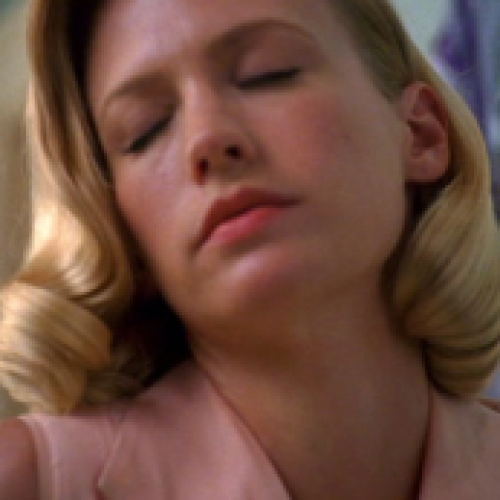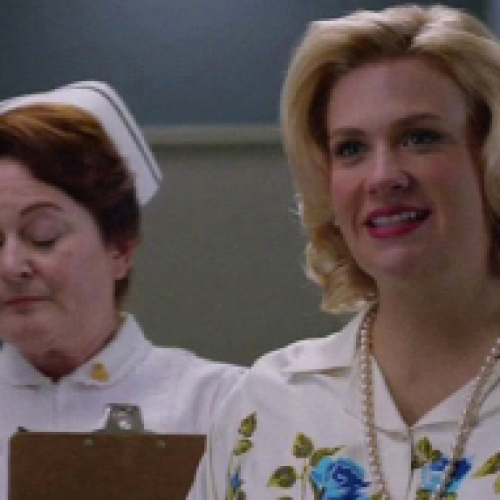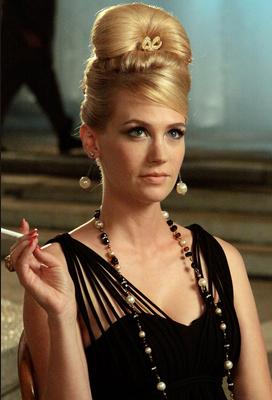With great beauty comes a great sense of entitlement–and subsequent depression when you don’t get what you want. Betty Draper is just such an example of this particular type of woman. Poised on the surface, Betty is nothing but a bundle of raw nerves beneath her cool exterior. One minute perfectly in control, the next fucking a washing machine, there’s no predicting where Betty’s neuroses will take her next.

While married to Don, Betty may have been at her most overtly dissatisfied. Deliberately ignoring the blatant fact that Don is cheating on her, Betty is far more content to throw herself into psychoanalysis, yet still manages to evade addressing all of her major psychological issues. And even though she gains weight in her second marriage to Henry, which, to most, might signal the ultimate sign of depression, it is also a form of happy resignation.

And then there are Betty’s, um…unique parenting skills to consider. Her mothering technique in and of itself could warrant an entire dissertation. Her jealousy of Sally’s youth and thinness in season six takes on subtle levels of bitchery as only Betty can perform. After such horrendous acts as firing the children’s lifelong nanny/housekeeper, Carla, and forbidding Sally to see her best friend, Glen, it becomes quite apparent that she has a hard-on for taking out most of her suffering and misery out on her progeny.

Regardless of Betty’s shortcomings as a mother, there is something decidedly fascinating about a woman so consumed with her own selfishness–as well as the need to remain the most beautiful one in the room. Her histrionic nature is, indeed, one of the most interesting elements of the show. Or at least more interesting than Don’s mother being a whore and his resulting “issues” with women that form the crux of Mad Men.






















[…] a goddess of domesticity who often sits on her badonkadonk eating bon-bons all day as tribute to Betty Draper, shrugged, “I don’t know what I do. Good genes, I guess.” So is there a real […]